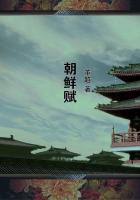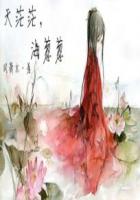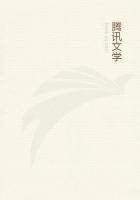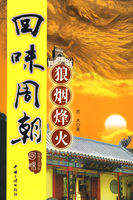A Clever Cheat--Passano--Pisa--Corilla--My Opinion of Squinting Eyes--Florence- I See Therese Again--My Son--Corticelli I was standing at some distance from my carriage into which they were putting four horses, when a man accosted me and asked me if I
would pay in advance or at the next stage. Without troubling to look at him I said I would pay in advance, and gave him a coin requesting him to bring me the change.
"Directly, sir," said he, and with that he went into the inn.
A few minutes after, just as I was going to look after my change, the post-master came up and asked me to pay for the stage.
"I have paid already, and I am waiting for my change. Did I not give the money to you?"
"Certainly not, sir."
"Whom did I give it to, then?"
"I really can't say; but you will be able to recognize the man, doubtless."
"It must have been you or one of your people."
I was speaking loud, and all the men came about me.
"These are all the men in my employ," said the master, and he asked if any of them had received the money from me.
They all denied the fact with an air of sincerity which left no room for suspicion. I cursed and swore, but they let me curse and swear as much as I liked. At last I discovered that there was no help for it, and I paid a second time, laughing at the clever rascal who had taken me in so thoroughly. Such are the lessons of life; always full of new experiences, and yet one never knows enough. From that day I have always taken care not to pay for posting except to the proper persons.
In no country are knaves so cunning as in Italy, Greece ancient and modern excepted.
When I got to the best inn at Leghorn they told me that there was a theatre, and my luck made me go and see the play. I was recognized by an actor who accosted me, and introduced me to one of his comrades, a self-styled poet, and a great enemy of the Abbe Chiari, whom I did not like, as he had written a biting satire against me, and I had never succeeded in avenging myself on him.
I asked them to come and sup with me--a windfall which these people are not given to refusing. The pretended poet was a Genoese, and called himself Giacomo Passano. He informed me that he had written three hundred sonnets against the abbe, who would burst with rage if they were ever printed. As I could not restrain a smile at the good opinion the poet had of his works, he offered to read me a few sonnets. He had the manuscript about him, and I could not escape the penance. He read a dozen or so, which I thought mediocre, and a mediocre sonnet is necessarily a bad sonnet, as this form of poetry demands sublimity; and thus amongst the myriads of sonnets to which Italy gives birth very few can be called good.
If I had given myself time to examine the man's features, I
should, no doubt, have found him to be a rogue; but I was blinded by passion, and the idea of three hundred sonnets against the Abbe Chiari fascinated me.
I cast my eyes over the title of the manuscript, and read, "La Chiareide di Ascanio Pogomas."
"That's an anagram of my Christian name and my surname; is it not a happy combination?"
This folly made me smile again. Each of the sonnets was a dull diatribe ending with "l'abbate Chiari e un coglione." He did not prove that he was one, but he said so over and over again, making use of the poet's privilege to exaggerate and lie. What he wanted to do was to annoy the abbe, who was by no means what Passano called him, but on the contrary, a wit and a poet; and if he had been acquainted with the requirements of the stage he would have written better plays than Goldoni, as he had a greater command of language.
I told Passano, for civility's sake, that he ought to get his Chiareide printed.
"I would do so," said he, "if I could find a publisher, for I am not rich enough to pay the expenses, and the publishers are a pack of ignorant beggars. Besides, the press is not free, and the censor would not let the epithet I give to my hero pass. If I
could go to Switzerland I am sure it could be managed; but I must have six sequins to walk to Switzerland, and I have not got them."
"And when you got to Switzerland, where there are no theatres, what would you do for a living?"
"I would paint in miniature. Look at those."
He gave me a number of small ivory tablets, representing obscene subjects, badly drawn and badly painted.
"I will give you an introduction to a gentleman at Berne," I said;
and after supper I gave him a letter and six sequins. He wanted to force some of his productions on me, but I would not have them.
I was foolish enough to give him a letter to pretty Sara's father, and I told him to write to me at Rome, under cover of the banker Belloni.
I set out from Leghorn the next day and went to Pisa, where I
stopped two days. There I made the acquaintance of an Englishman, of whom I bought a travelling carriage. He took me to see Corilla, the celebrated poetess. She received me with great politeness, and was kind enough to improvise on several subjects which I suggested. I was enchanted, not so much with her grace and beauty, as by her wit and perfect elocution. How sweet a language sounds when it is spoken well and the expressions are well chosen. A language badly spoken is intolerable even from a pretty mouth, and I have always admired the wisdom of the Greeks who made their nurses teach the children from the cradle to speak correctly and pleasantly. We are far from following their good example; witness the fearful accents one hears in what is called, often incorrectly, good society.
Corilla was 'straba', like Venus as painted by the ancients--why, I cannot think, for however fair a squint-eyed woman may be otherwise, I always look upon her face as distorted. I am sure that if Venus had been in truth a goddess, she would have made the eccentric Greek, who first dared to paint her cross-eyed, feel the weight of her anger. I was told that when Corilla sang, she had only to fix her squinting eyes on a man and the conquest was complete; but, praised be God! she did not fix them on me.

